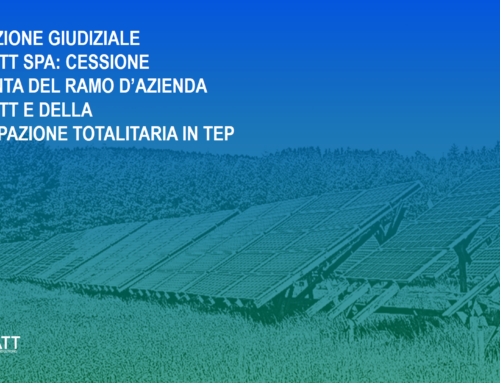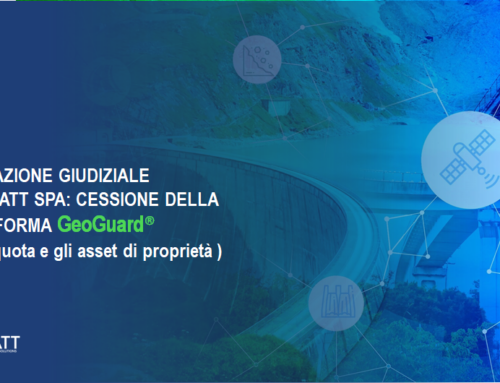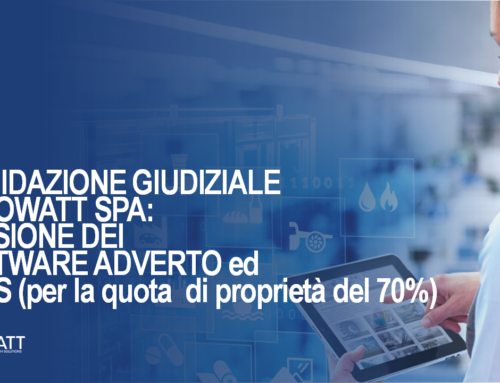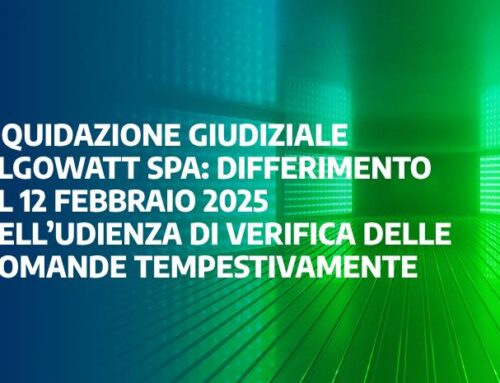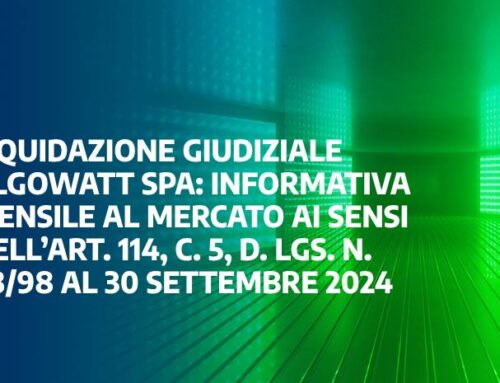IR Top, the Italian company specialised in Investor Relations Consultancy and Financial Communication, presented a preview of the key highlights of the “Green Economy on Capital Markets – 2012” Research Body report, based on a sample of 114 Italian and European companies operating in the Green sector. The study was presented within the “Green Investor Day”, organised by IR Top in Milan at Palazzo Mezzanotte in which qualifying investors, principally Family Offices, Investment Funds and Private Bankers, met with listed Green companies and sector experts.
The event was carried out in colloboration with Borsa Italiana. Intermonte SIM participated as the main sponsor. Partners of the initiative included: Corporate Family Office SIM, Mergermarket, UK Trade & Investment, Biancamano, Falck Renewables, Kinexia, TerniEnergia and TerniGreen. Technological partner: Gruppo San Faustino.
The principal themes emerging during the meeting concerned development, governance systems, value and costs of capital and investments in the Green sector.
“The European Green economy – stated Anna Lambiase, Chief Executive Officer of IR Top – continued on its growth path also in 2011, both in terms of volumes (+23%) and margins (+9%); Italy was confirmed as leader in Europe for margin growth of the listed Green companies sample (+18%), generating employment growth of
3% in 2010, with approx 7,000 employees. Italian Green listed companies are more solid and profitable than
2010, with average revenues of Euro 112 million and an average EBITDA margin of 20%. The data highlights a strong outlook for development and international expansion, a large number of international investors and an
increase in “Green” technological innovation across a number of good sectors, in addition to a strong belief by institutional investors in the sectors growth potential. Within this context our VedoGreen initiative responds to the substantial interest from the financial community in the Green industry, bringing together listed companies and investors, in addition to paving the way for new sources of capital for non-listed companies.
Across the globe numerous Green stock indices have been created, in addition to the birth of specialised Green funds: this highlights the significant evolution of the Green industry within the capital markets, with hopes also in Italy for the creation of a Green FTSE index, with investors perceiving an opportunity for increased growth over the coming decade.
High development and international expansion potential for this sector is behind the significant involvement of institutional investors acquiring stakes in such companies – numbering 69 – principally from overseas (61%) and for a total investment value of Euro 118 million. The most active foreign investors in Italy are from the United States (13%) and France (12%). Among the most active Italian investors we highlight Eurizon Capital, Sella Gestioni, Banca Monte dei Paschi di Siena and F2i Fondi Italiani per le infrastrutture; among the overseas funds we highlight DFA, Bessemer Investment Management, Allianz SE and Canada Pension Fund.
We drew up a sample of 50 GREEN non-listed Italian companies, selected based on their excellent results, the sustainability of their business model and close attention to transparency; a part of the Vedogreen initiative for the search for Investment Funds, in addition to other sources of capital, will be dedicated to this sample”.
In relation to the opportunity to create a Green index for the small and mid cap Italian and UK companies the representatives of the listed companies stated the following:
“BIANCAMANO – commented Mr. Pier Paolo Pizzimbone, Vice Chairman of Biancamano – strongly favours the creation of a Green index as it would open up the possibility of attracting specialised funds for the sector and, in addition, would incentivise teamwork among the companies involved, who could jointly organise dedicated road shows under the auspices of Borsa Italiana (the Italian Stock Exchange). In addition we could act together in relation to issues such as ethics, emission controls, energy saving etc, which – in addition to other benefits – would create greater efficiency and visibility.
Mr. Piero Manzoni, Chief Executive Officer of Falck Renewables stated: “Falck Renewables is focused on any system – financial and industrial particularly – which can strengthen a driven and anti-cyclical sector of the economy which will remain strong and sustained. The commitment to consider all renewable energy, independent of the technology and the renewable resource utilised, is the basis to sustain all Green initiatives and our primary motivation.
This is as we believe in an increasingly sustainable future which focuses on “environmental production”, without distinguishing between the technologies involved – wind, photovoltaic or hydro.
We hope that the birth of a cluster, not just green but that which can be defined also as environmental, provides the founding principle of a new force and a new cooperation which, in addition to the basis ideology, in itself creates an economic, financial, industrial, and international development impetus and is representative of all the vital environmental technologies necessary for the success of our sustainable vision of the world.
“I believe it is most timely to create a small and mid cap Green index – commented Mr. Pietro Colucci – Chairman and Chief Executive Officer of Kinexia – the sector is growing globally as part of the fight against climate change and is becoming a concrete presence, not just in the environmental field, but particularly in the economic and social fields, creating investment in sustainable environmental infrastructure and generating therefore employment, economic growth and value for shareholders – and with a strong social commitment also. The need to promote and highlight to stakeholders that which has been achieved is central to redefining the vision of the entire sector and for this reason all National Industrial Associations, uniting with the Green sector companies, have just launched the General States of the Green Economy in Italy, in order to draw up a new development strategy for a sector which has been, and will continue to be, a driver of development and has led a shift in thinking within the industrial system towards a greener approach. A green index would allow Institutional Investors, both domestic and overseas, to identify and support companies which seek from the markets the capital necessary to implement their industrial projects and at the same time allow those companies to become more visible to such investors”.
“The creation of a Green Index – commented Mr. Stefano Neri, Chairman and Chief Executive Officer of TerniEnergia and TerniGreen – will increase the visibility of companies with high environmental sustainability credentials with investors. At the same it will undertake a guiding role in the benchmarking of the companies and of the sectors which are more committed to improve their services and their technologies and who are committed to develop environmentally-friendly products, countering the increasing attempts by many enterprises at greenwashing. With an instrument such as a dedicated stock exchange index, already existing in China and in the USA and in line with the significant growth of the low-carbon economy, it will be increasingly evident that environmental industrial activities have changed from being considered a burden to the productive process to being perceived as a stimulus for innovation and increased competitivity”.
The “Green Economy on Capital Markets – 2012″ study, in its second edition, analysed the 2011 results of, and the presence of institutional investors in, 114 listed companies in Italy and on the principal European indices (Denmark , Finland, France, Germany, Norway, Sweden and the UK).
Companies in the Green sector and with a market capitalisation of under Euro 500 million were considered for the sample.
The Italian companies in the sample numbered 14: Aion Renewables, Alerion Clean Power, Biancamano, Eems Italia, ErgyCapital, Falck Renewables, Fintel Energia Group, Greenvision ambiente, Industria e Innovazione, K.R. Energy, Kinexia, Sadi Servizi Industriali, TerniEnergia and TerniGreen.
Substantial growth in the size of green companies in all European countries emerged in 2011, with an average revenue increase of 23% and of EBITDA of 9% on 2010. Italy reported revenue growth of 19% and EBITDA growth of 18% (outperforming the European average).
Strategic development will take place principally through regional diversification by acquisitions and direct investments, focus on the issues of energy efficiency, expanding the business into complementary segments and the consolidation of established markets.
The 50 Italian non-listed Green companies selected by IR Top for their excellent results, sustainability of the business and close focus on transparency highlighted the following average results:
– REVENUES: Euro 43 million
– EBITDA : Euro 9 million
– EBITDA margin: 28%
– Average No. Employees: 106
The sampled companies provide employment to approx 5,100 persons for total business volumes of over Euro 2 billion. Particular attention will be dedicated to those businesses within the Vedogreen initiative for the search for alternative sources of capital.
A summary of the study is available through registering on the portal www.vedogreen.it.

